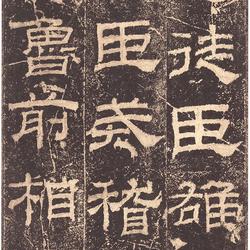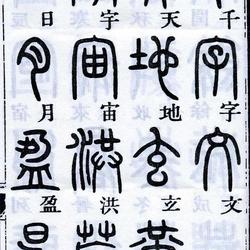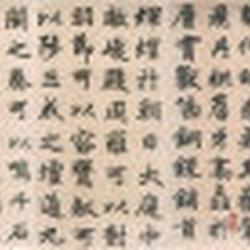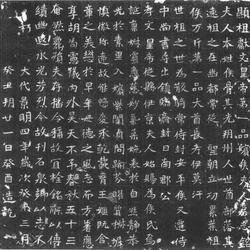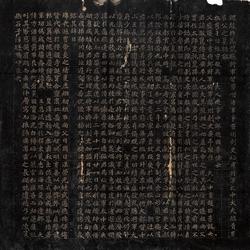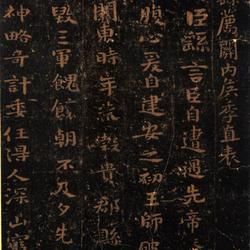The full name of "Cao Quan Stele" is "Han Heyang Order Cao Quan Stele", also known as "Cao Jingwan Stele". It was erected in October of the second year of Zhongping in the Eastern Han Dynasty (185 AD). It is a vertical square, 273 cm high and 95 cm wide, with a total of 20 lines and 45 characters in each line. It was unearthed in the old city of Hexian County, Shaanxi Province in the early years of Wanli in the Ming Dynasty. It was collected in the Xi'an Forest of Steles Museum in 1956. The content is Wang Chang's account of Cao Quan's life. This stele is one of the representative works of Han stele and a typical example of the beautiful school. Its structure and brushwork have reached a very perfect state. Wanjing of the Qing Dynasty commented on this stele: "Beautiful and vivid, not restrained, not hurried, it is of divine quality." "Cao Quan Stele" is one of the few works with relatively complete preservation and clear fonts among the stone steles of the Han Dynasty in my country.
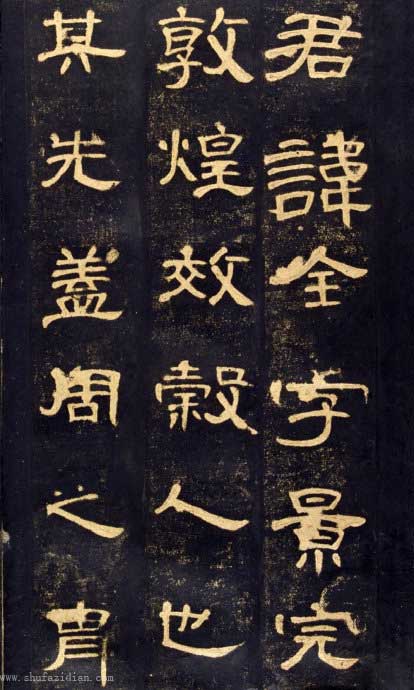
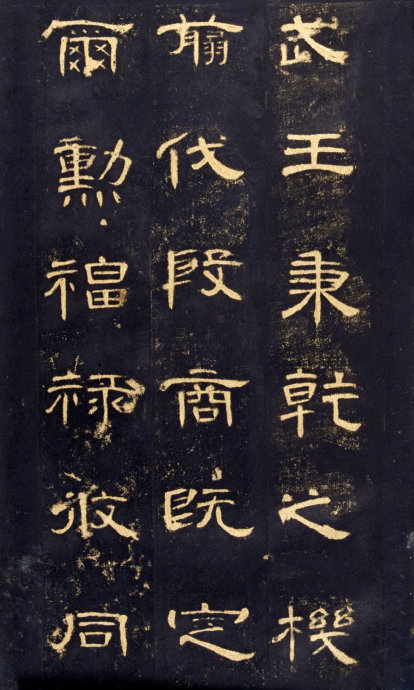
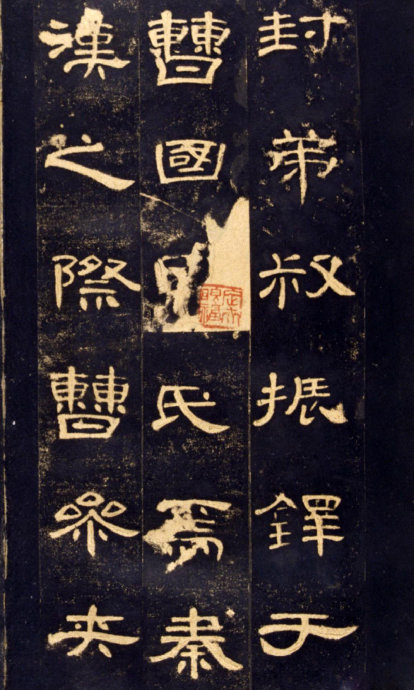
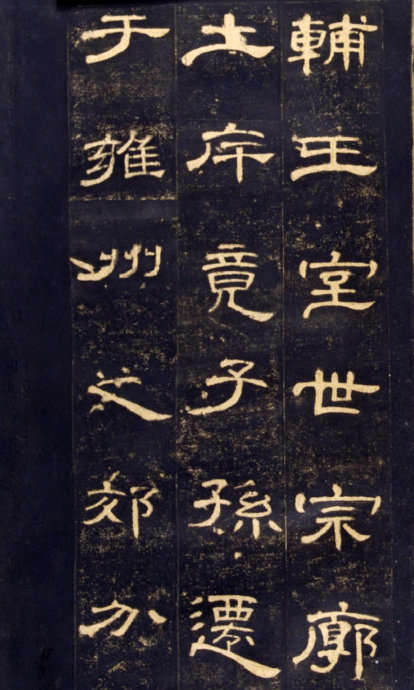
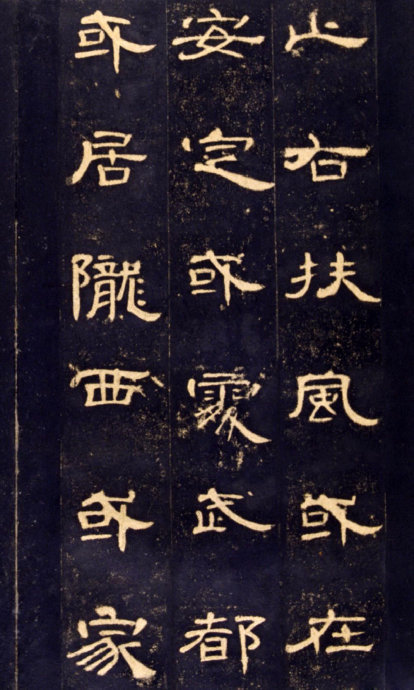
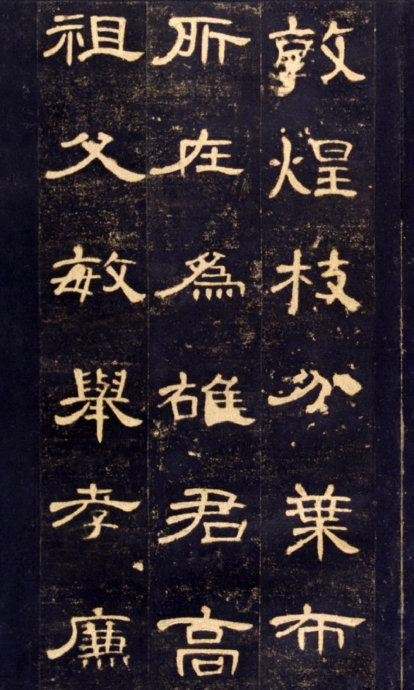
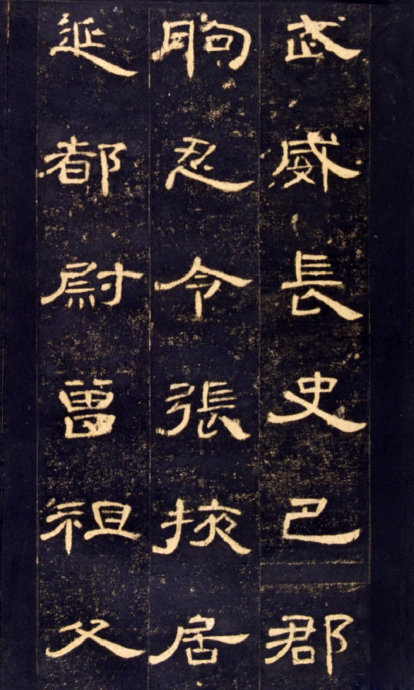
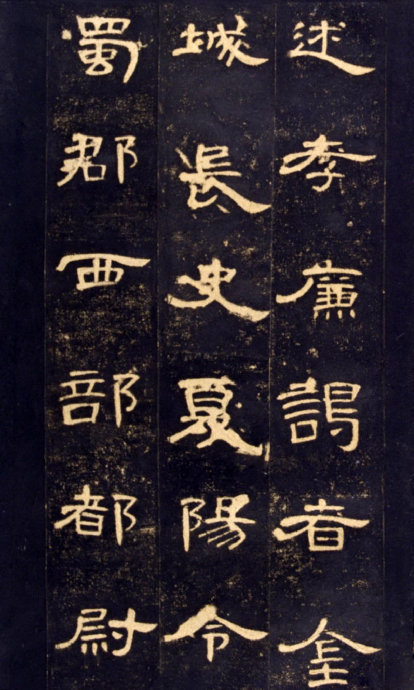
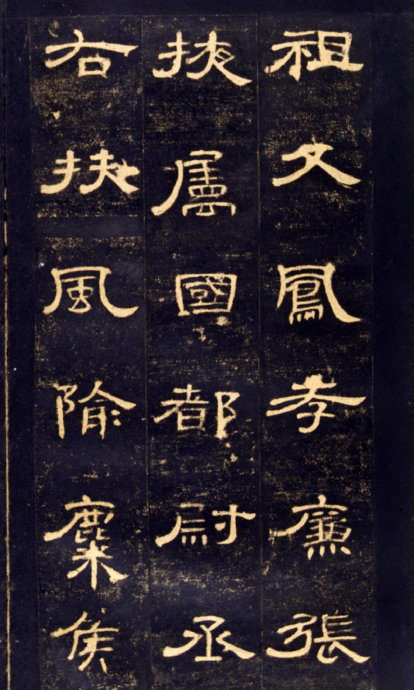
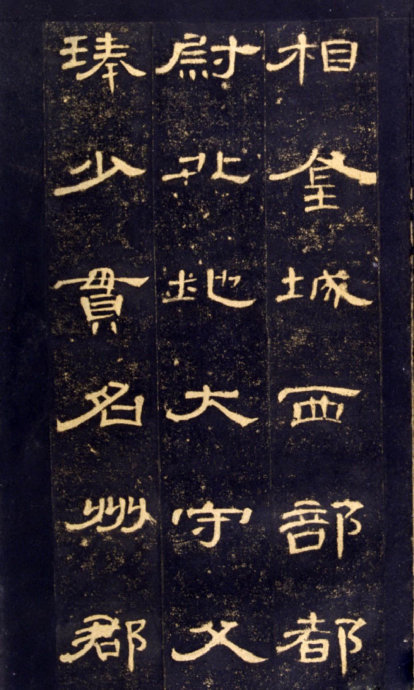
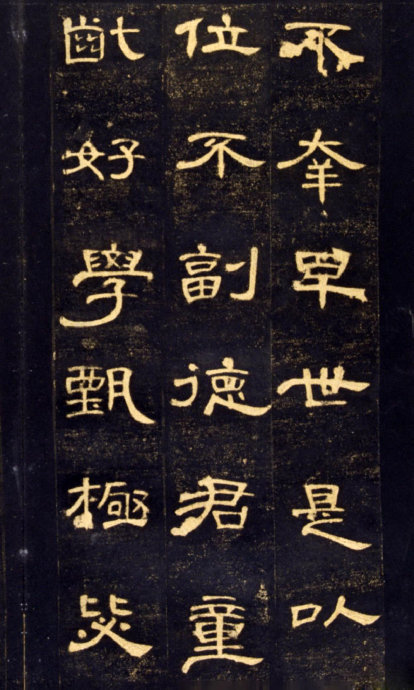
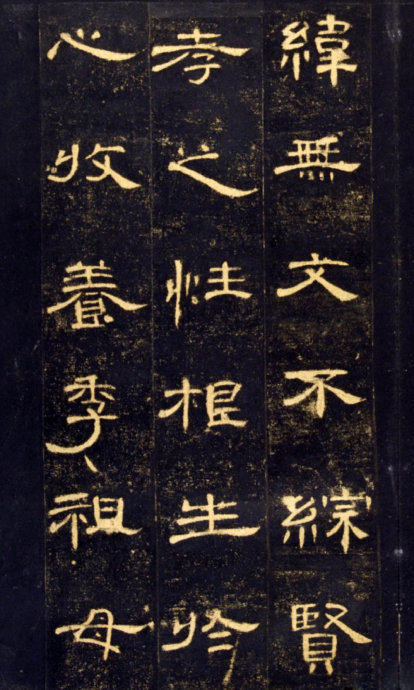
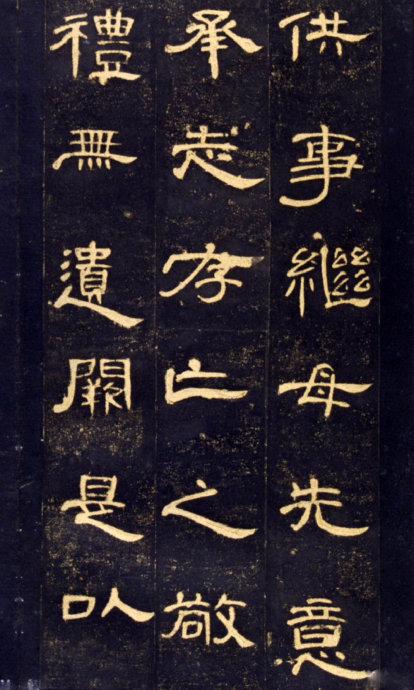
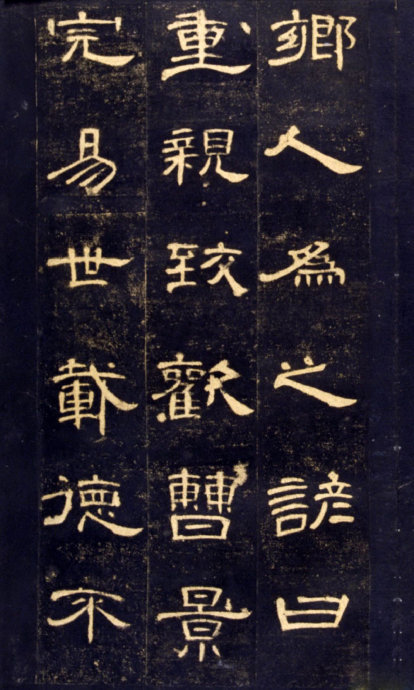
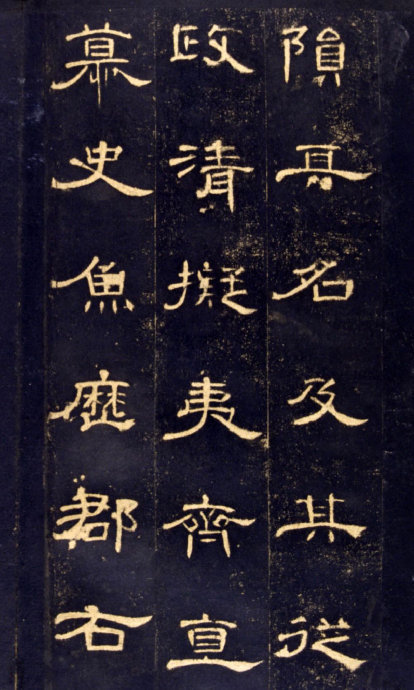
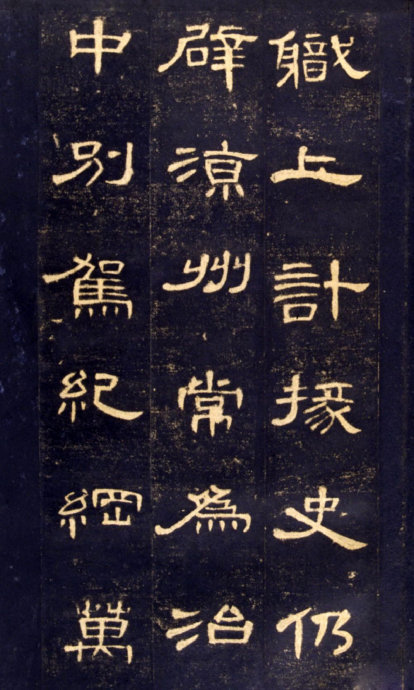
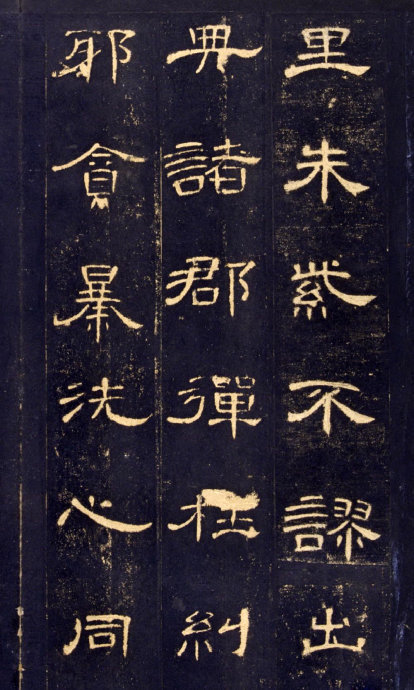
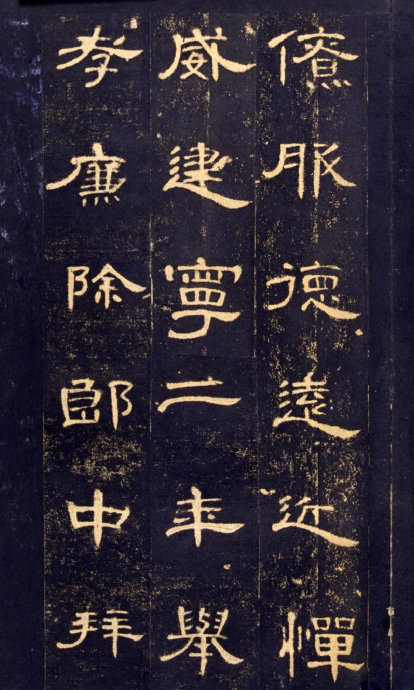
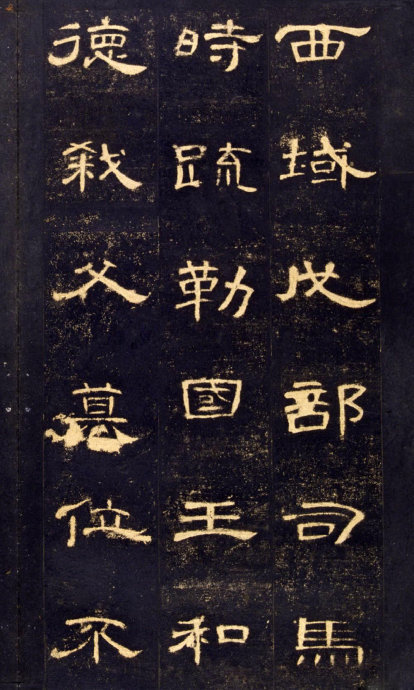
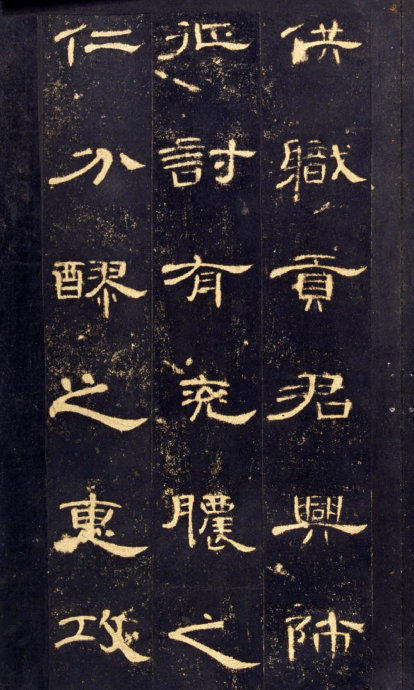
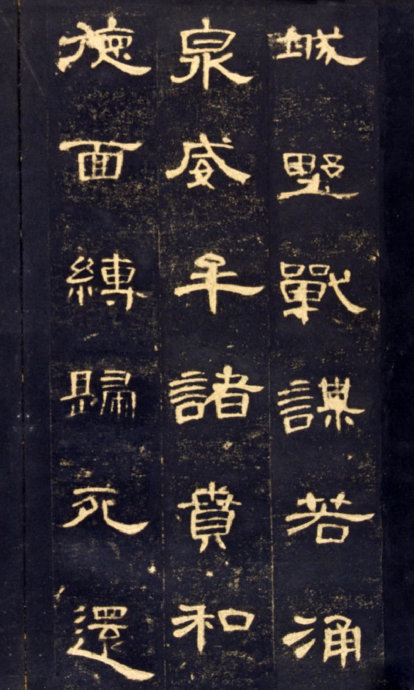
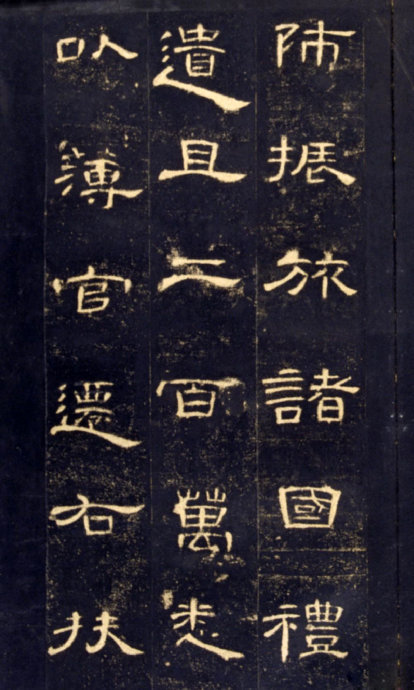
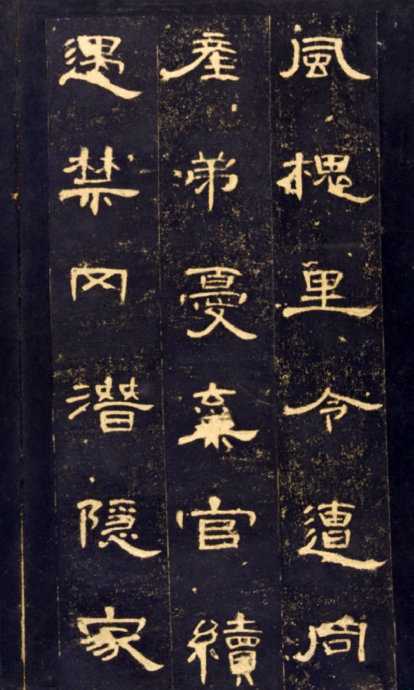
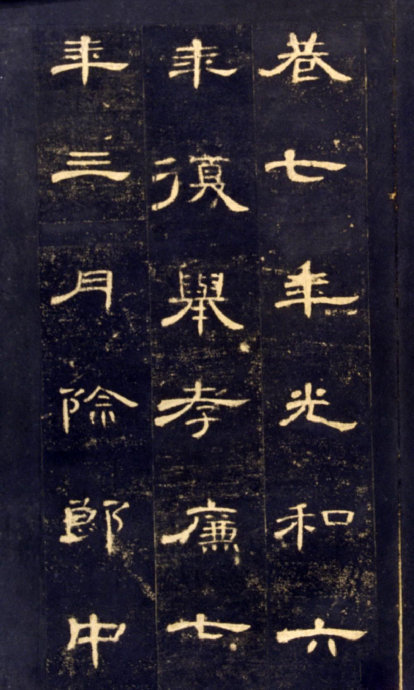
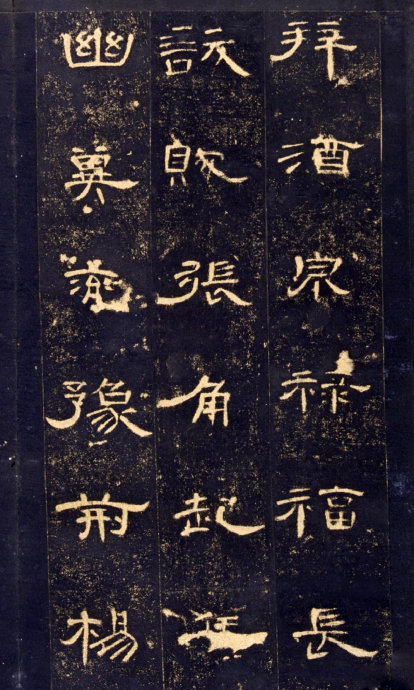
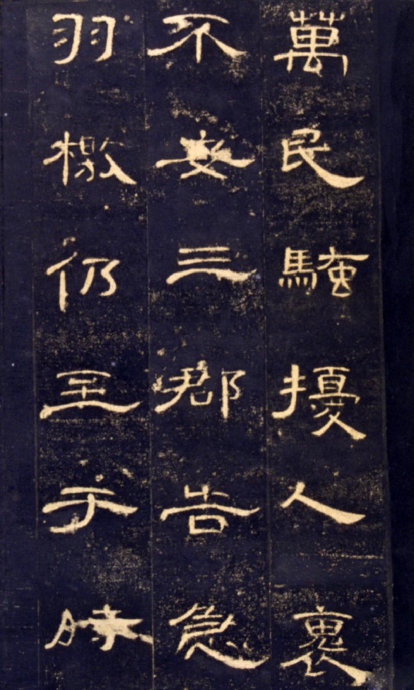
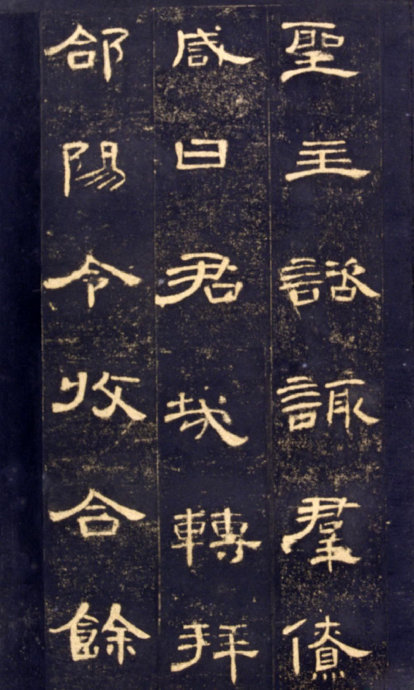
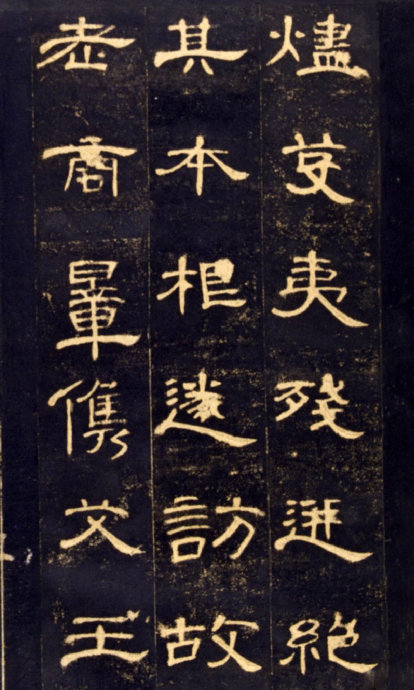
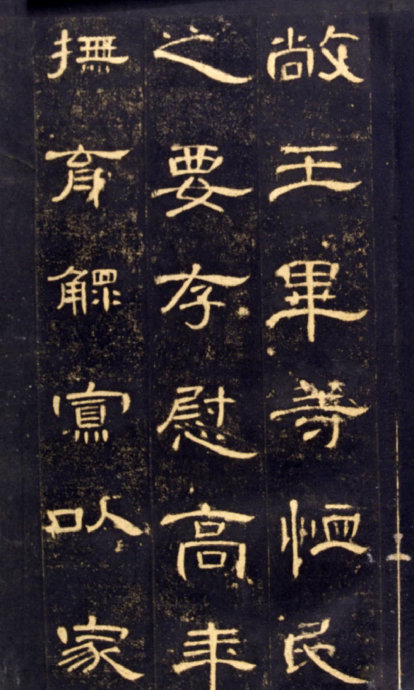
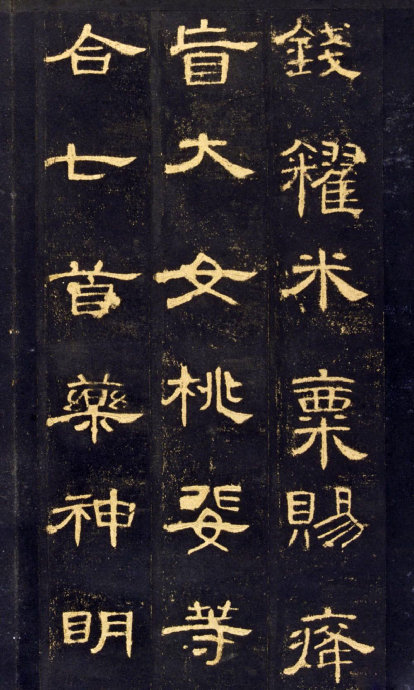
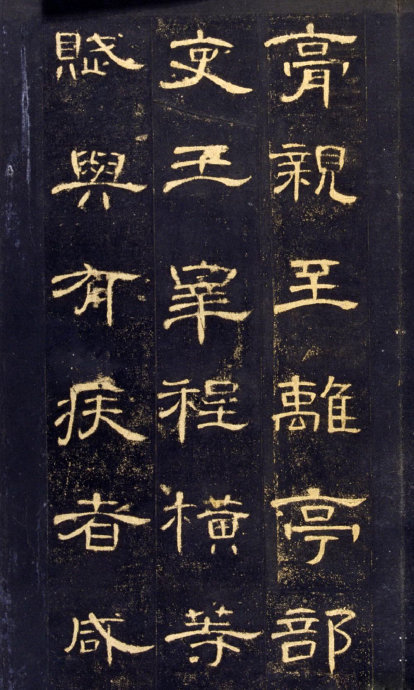
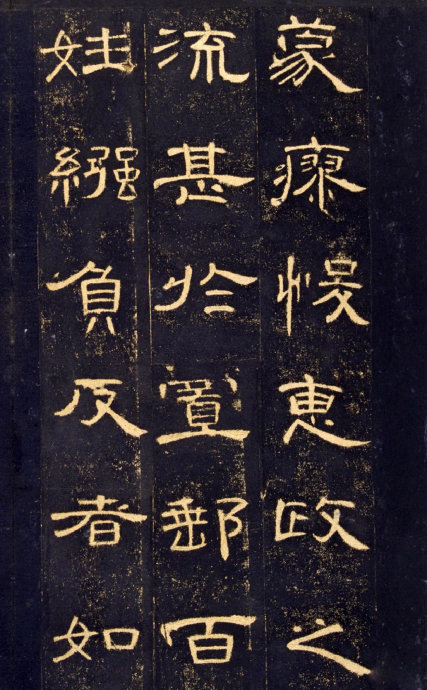
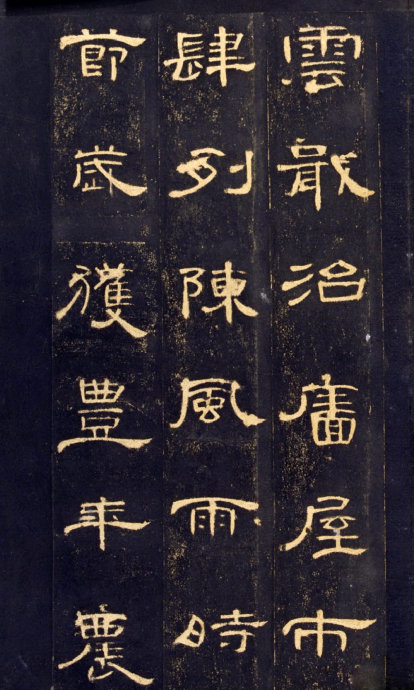
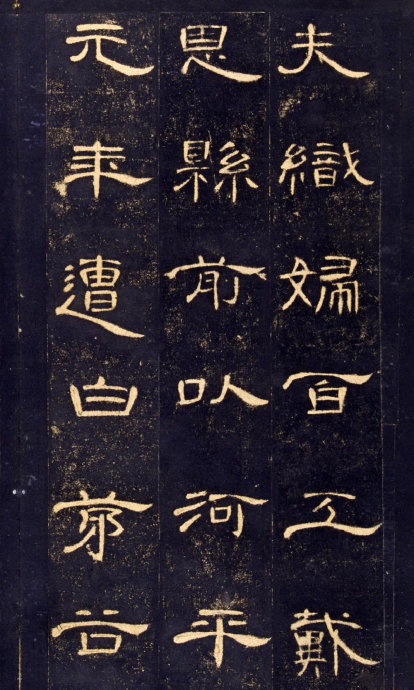
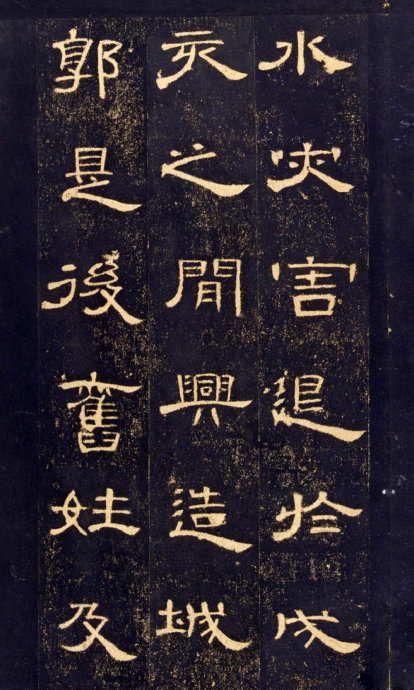
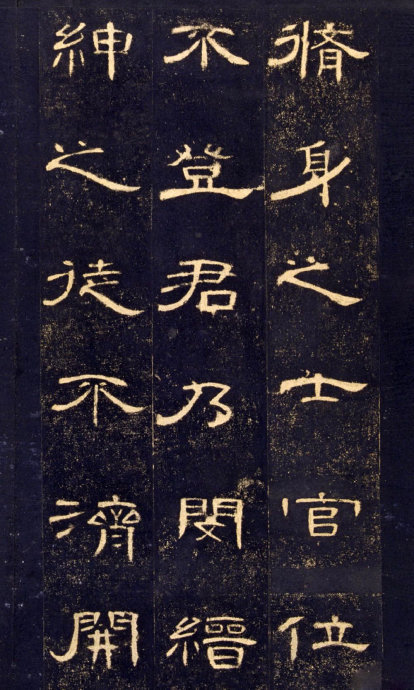
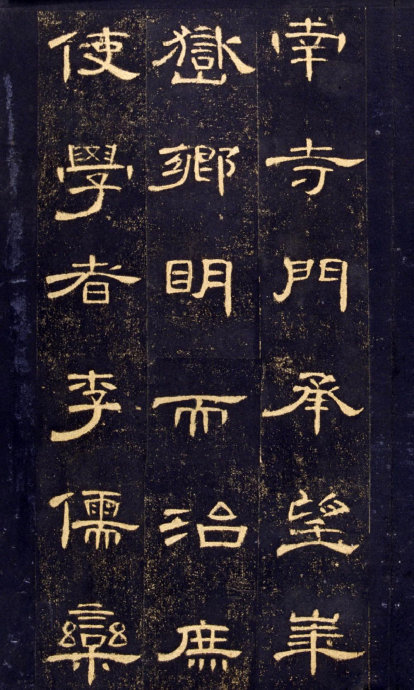
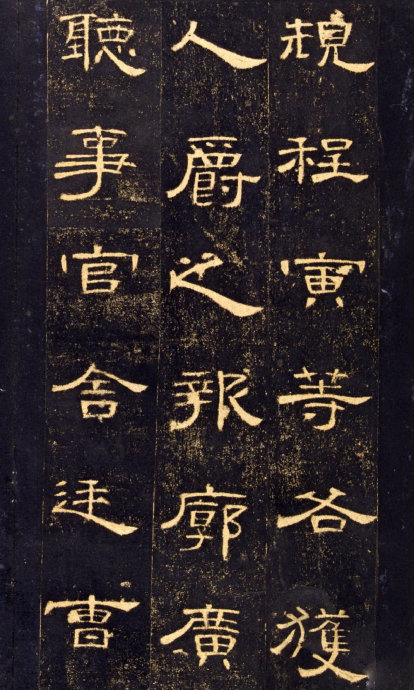
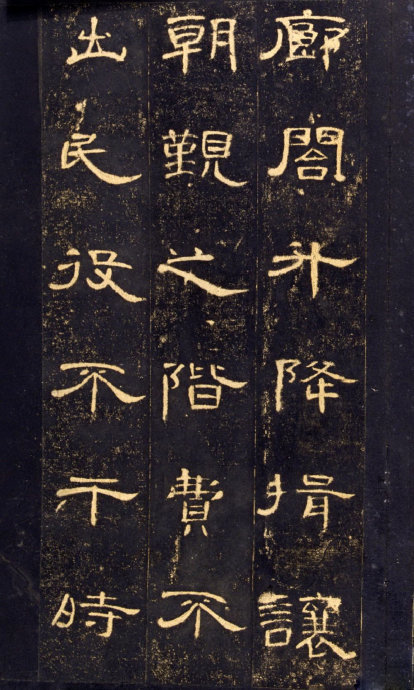
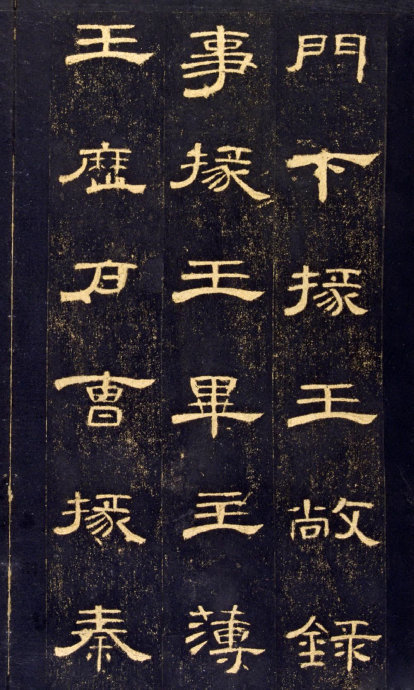
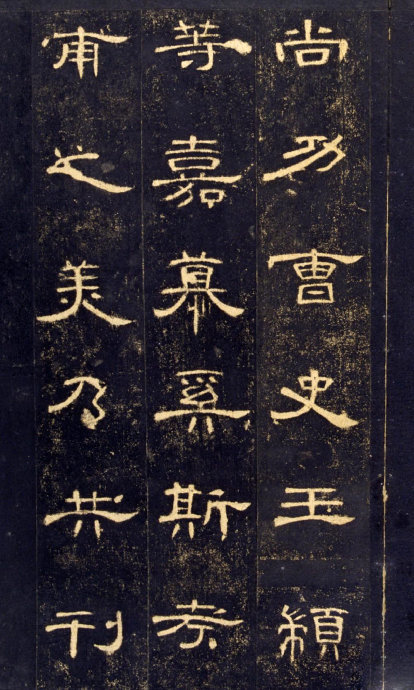
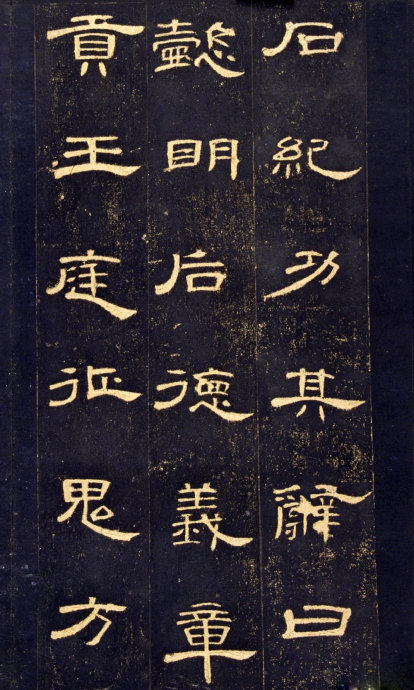
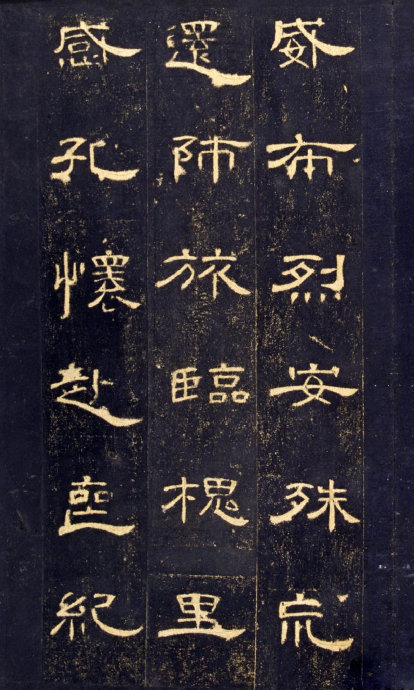
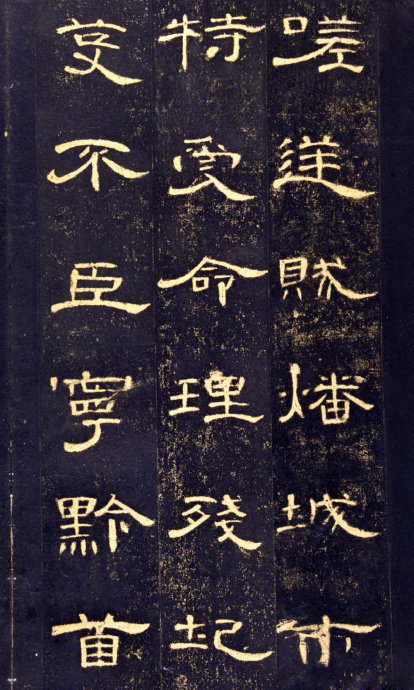
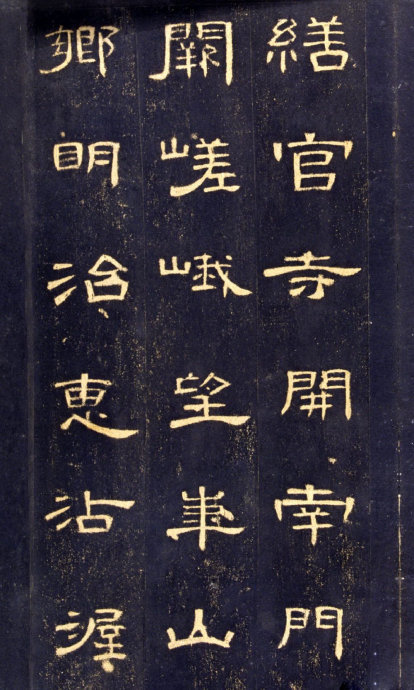
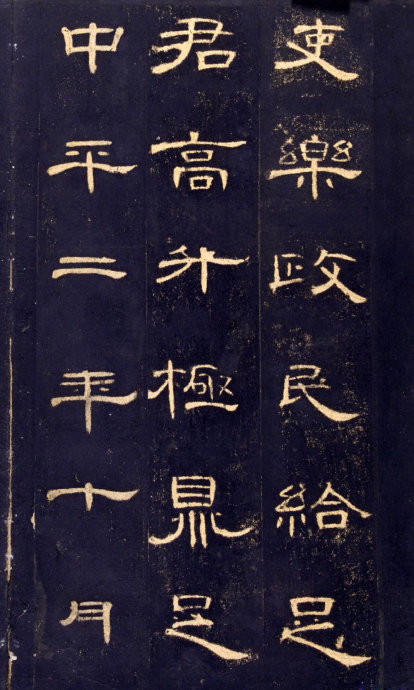
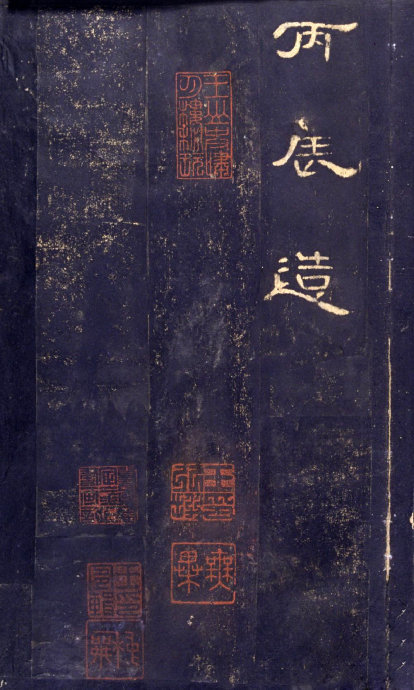
This stele is an important representative work of the official script of the Han Dynasty. It is unique among the official scripts of the Han Dynasty. It is a stele with a large number of characters preserved in the official script of the Han Dynasty. It is beautiful and beautiful, with a flat and well-proportioned structure, stretched and graceful, graceful, with straight strokes and both length and length. It belongs to the same category as Yi Ying and Ritual Vessels, but its expression is gorgeous, graceful and flying, and it has the attitude of "looking back, smiling and being full of charm", which is really a strange thing among Han Li. The method of Bo Zhen is similar to that of "Ode to the Stone Gate". It is famous for its elegant style and neat structure, so it has always been valued by calligraphers.
The "Cao Quan Stele" was erected by Jin Wang Chang and others to commemorate Cao Quan's achievements. Wang Min, Wang Bi and others set up stones.
Cao Quan, courtesy name Jingwan, was born in Xiaogu, Dunhuang. He was born into a prominent family in Dunhuang and became famous in the Hexi border area for his military exploits. Unfortunately, just when Cao Quan was feeling proud, he was unjustly imprisoned for seven years due to a brutal struggle between political forces. It was not until March of the seventh year of Guanghe (AD 184) that the Yellow Turban Uprising swept across the Central Plains. The imperiled court had no choice but to grant amnesty to the whole country. Cao Quan was released from prison and was appointed by the court as the Chief of Lufu in Jiuquan to lead troops to suppress the rebels. "Experts from the Xi'an Forest of Steles Museum said that in order to recover the lost time and realize the grand ideal of "benefiting the world", Cao Quan served as the "Heyang Order" and carried out a brutal armed suppression of the Yellow Turban Rebels. Cao Quan's His actions and his high prestige for being honest and caring for the people during his reign made 57 county and county officials in Heyang, under the call of Wang Bi, Wang Li, Qin Shang and others, be grateful and work together to build the old city of Heyang (today's Heyang County seat). 20 kilometers east of Fuliu Township (near Heyang Village), this immortal monument was erected for Cao Quan. In addition to recording Cao Quan's suppression of the Yellow Turban Uprising in the late Eastern Han Dynasty, the inscription "Cao Quan Stele" also records Zhang Jiao's leadership of the peasants. The spread of the uprising to Shaanxi reflects the momentum of the peasant army at that time and the situation of the Guo family uprising in Heyang County. It provides important historical data for studying the history of peasant uprisings in the late Eastern Han Dynasty.
Speaking of the twists and turns of the "Cao Quan Stele", we cannot but mention a man named Xing Zhisheng. During the Anti-Japanese War, Xi'an, Heyang and other places were repeatedly attacked by air raids. Once, Heyang was bombed by six enemy planes in turn, killing and wounding as many as 57 people. At this critical moment, the Shaanxi Provincial Government and Department of Education and other relevant units have strictly ordered all counties to take measures to protect cultural relics. After receiving the order, the Heyang County Government immediately ordered Xingzhi Sheng and others, the workers in Beihunan Village of the county who were rubbing the stele, to build a cave dwelling with soil on the spot in the Heyang Confucian Temple to maintain the "Cao Quan Stele". In order to keep it secret and prevent traitors from sabotaging it, Xingzhi Sheng and his colleagues spread the word, pretending that "the "Cao Quan Monument" has been destined to the provincial capital." From 1939 to 1944, for 5 years, the "Cao Quan Monument" was able to escape the indiscriminate bombings of enemy planes time and time again, safe and sound. This is inseparable from the careful protection of the Xingzhi Province. . In 1956, Xi'an Forest of Steles Museum sent workers to dig out the "Cao Quan Stele" hidden in the rammed earth wall of Heyang Confucian Temple and transport it by truck back to the Forest of Steles for collection.
"Cao Quan Monument"BeiyangExplanation:
Jun Tao Quan, Zi Jing Wan, a native of Dunhuang. He first built the Zhou Dynasty, and King Wu Bingqian took the opportunity to attack the Yin and Shang Dynasties. It was determined that you would have the same honor and fortune, and you would grant your younger brother Zhenduo to Cao Guo. Because of the Yan family, during the Qin and Han Dynasties, Cao Shen assisted the royal family, Shizong Kuotu dismissed Jing, and his descendants moved to the suburbs of Yongzhou. They were divided into Youfufeng, or in Anding, or in Wudu, or in Longxi, or in Dunhuang, Zhifen Yebu, where he is a hero, his great-grandfather is Min, he is filial and honest, he has a long history of Wuwei, he is the commander of Quren in Bajun, and he is the captain of Juyan in Zhangye, his great-grandfather is Shu, he is filial and honest, he is a visitor, he is a long history of Jincheng, he is the commander of Xiayang, and he is the commander of Shujun. The commander-in-chief of the West, grandfather Feng, Xiaolian, the commander-in-chief of the state of Zhangye, the Prime Minister of Mihou of Youfeng Feng, the commander-in-chief of the west of Jincheng, the prefect of the north, his father Gu, Shaoguan Mingzhou County, unfortunately died early, so the position is not worthy of morality , a gentleman who likes to learn, is extremely knowledgeable, has a thorough understanding of everything, has a virtuous and filial nature, is rooted in the heart, adopts Grandma Ji, serves as a stepmother, inherits the will of the ancestors, respects life and death, and has no trace of etiquette. He is treated as a native of the country. The proverb says: Pay close attention to relatives and bring joy to Cao Jingwan. He has carried great virtues in the world. He has not lost his name and followed the attack. The Qing Dynasty planned to barbarize Qi. He directly admired Shi Yu. , often govern the country, do not drive, keep discipline for thousands of miles, nobles are not wrong, go out to all counties, correct evil in vain, be greedy and violent, wash away the heart, colleagues are virtuous, far and near are afraid of authority, in the second year of Jianning, he promotes filial piety and honesty, except for doctors. I paid homage to the Sima of the Wu tribe in the Western Regions. At that time, King Hede of Shule killed his father and usurped the throne. He refused to pay tribute. He raised an army to conquer. He had the benevolence to lead the pus and divided the benefits of the mash. He attacked the city and fought in the field. His plan was like a spring, which was powerful to Mou Zhuben. He De was bound to death and returned to the army to revive the army. The gifts from various countries and two million were all registered as officials. He moved to Feng Huaili, his right husband. His brother of the same birth abandoned the official position. He continued to encounter the forbidden net and hid in hiding. In the seventh year of Jiaxiang and the sixth year of Guanghe, he was promoted to Xiaolian again. In March of the seventh year, he got rid of the doctor and paid homage to Jiuquan. The Guo family and others started rebellion again, burned the city and temples, harassed the people, and made people uneasy. The three counties were in urgent need, but the imperial edict still came. At that time, the Holy Lord consulted Su, and the officials said: "Your Majesty, I turn to pay homage to the Heyang Order." , collected the embers, wiped out the remaining remains, and eliminated their roots, so they visited their old friends to discuss. Junai, Wang Chang, Wang Bi, etc., cared for the needs of the people, comforted the elderly, raised widows, and used their family money to buy rice and millet. The eldest daughter Tao Li and others were given to the blind people, combined with the ointment of seven medicinal gods, and went to Liting in person. The officials Wang Zai, Cheng Heng, etc. were given as gifts to the sick. , the people were in need, and the rebels were like clouds. They organized and organized the huts, the shops were arranged, the wind and rain season, the harvest was good, the farmers and weavers, and the hundreds of workers were all in trouble. In the free time of Wu Hai, the city was built. It was a man with the old surname and a self-cultivation. He was not in the official position. The king was Min Jin. He was a disciple of the gentry. He opened the gate of the south temple and looked at Huayue. The countryside was bright and governed. The concubine sent scholars Li Ru and Luan Gui. , Cheng Yin, etc., each received a report of a title, and the official residence was widely used to listen to the affairs. The court officials and ministers gathered together, raised and lowered the court, bowed to the steps of the pilgrimage, and did not spend money on the people. When they stopped serving, they were sent to Wang Chang under the door, and the king was sent to record the affairs. , Wang Li, the master of records, Qin Shang of Hu Cao, Wang Zhuan of merit Cao Shi, etc., praised Xi Si and Kao Fu's beauty, so they jointly published Shi Ji Gong. The words are: After Yi Ming Dynasty, Deyi Zhang, tribute to the king's court, Zheng Guifang , Weibulie, Anshuhuang, returned to the army, Lin Huaili, felt the feelings of Confucius, went to the funeral, complained about the rebels, burnt the city, was specially ordered to manage the ruins, refused to submit, Ningqian head, repairing the official temple, Open the south gate, look out at Mount Huashan, the countryside is under good rule, the people are well-off, the officials are happy, the people are well-provided, the king is promoted, and the tripod is built in October of the second year of Zhongping.
Explanation on the stele of "Cao Quan Stele":
Chushi, Hedong Pi's Qimao, Xiaocai, two hundred counties, three elders from Boqi, five hundred townships, Sima Ji, Zhongshang, five hundred conscripts, Li Ruwenyou, five hundred former disciples, offered wine to Yao Zhi, Xin Qing, five hundred former disciples, Wang Changyuan, Fang Qian's former family discussed the affairs of king Bi Shiyi Qian's former governor post Li Kui's uncle five hundred former governor post Yang Dong Zi Hao Qian's former general ordered Shi Dong Pu Jian Li three hundred former commanderies Cao Shishou Prime Minister Ma visited Zi Mou's former governor Cao Shicheng Yang Rong's birthplace Man Jun Anyun, Cao Ren, Wu Ziliu, Cao Cao, Tun Dingji, Cao Wang, Kong Da, Cao Wang, Jizi Qiao, Cao Wang, Kong Liang, five hundred, Cao Wang Xianzi, Cao Qin, Kongdu, Gong Cao Wang Heng Daoxing Gong Gong Cao Yang Xiu was the daughter of five hundred Gong Gong Cao Wang Yan Wen Gui Gong Gong Cao Qin Zhu Han Du Qian Lian Gong Gong Cao Wang Xu Zihong Gong Gong Cao Du An Yuan Jin Yuan Kong Xuan Meng Zhong Mou Gong Ming Yao Min Sheng The former city governor Zun Wenxi, the former city governor Du Jingyan, the former chief secretary Deng Hua, Kong Yan, the former thief Cao Wangyi, Changhe, the former city governor Wang Lijianhe, the former city governor Cheng Bomanju, the former city governor Yang Ze, Kong Ze, the former city governor Cheng Huang, Kong Xiu Gu Shi Hu An Zi An Qian Gu Shi Fu Gao Yexian and Qian Gu Shi Fu Wang? Ji Hui Qian Gu's disciple Shi Qin Jing came first. The former thief Cao Shiwang was awarded Wenbo Gu Jin Cao Shi Jingchang Wen Liang Gu Ji Cao Shi Ke Xiangwen Ju Qian Gu Cao Shi, the thief, Zhao Fuwenzhi, the old method, Cao Shi, Wang Ganwen, the old country, Cao Shi, Du Miao was young, the old fortress, Cao Shi, Wu Chan, Kong Cai, 500 □□ tribes, Zhao Jiong, Wen Gao, □□ Cao Shi, Gao Lian, Ji Qianyishi, Hedong Anyi, Liu Zhengyuan, Fang Qianyishihou Praising Wenxian, five hundred martyrs, Yingchuan, Zang Jiuyuan, five hundred martyrs, Anping, praying for a doctorate, Ji Chang, two hundred

